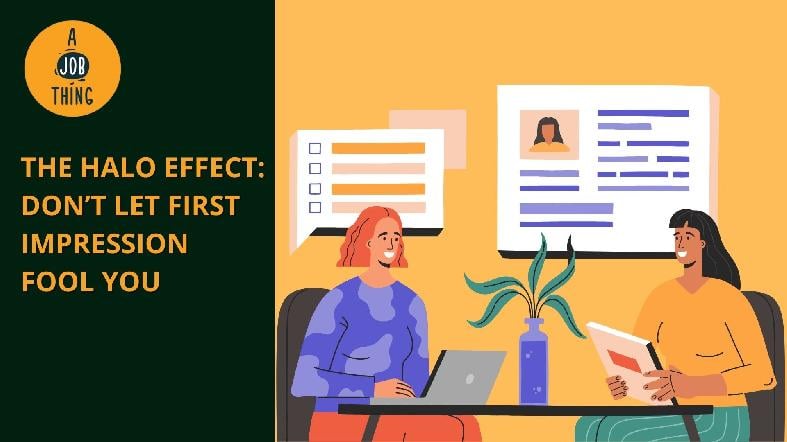
The Halo Effect: Don’t Let First Impression Fool You
Are You Hiring?
Find candidates in 72 Hours with 5+ million talents in Maukerja Malaysia & Ricebowl using Job Ads.
Hire NowThe term "halo effect" was created by psychologist Edward Thorndike to explain how people unknowingly bias themselves to liking others.
It's a cognitive bias in which someone's positive single attribute or quality influences our opinion on unrelated aspects. For instance, you may conclude that just because this individual is excellent at communicating, they will be great at everything else on the job description. This is a very prevalent recruiting bias that leads to a bad hire.
The Halo Effect is a common error that we all make. Our thoughts form quick judgments and assumptions, and we are more open to what we like. As a result, overcoming that requires a great deal of experience. As a result, it's critical to pay attention during the interview process to see if you're slipping into that trap.
Finally, as a hiring manager, you'll want to identify the person who is the best fit and has the most experience to join the company. Not someone you like because of a single aspect that has piqued your interest.
According to a CareerBuilder research:
-
80% of employee turnovers are due to a bad hire
-
60% of bad hires did not work well with others
-
41% of businesses estimate the cost of bad hires to be over 3-4 months of their salary
Why does this bias happen during interviews?
Hiring managers prefer candidates that are comparable to them and who they believe will work well with them.
Whether they like it or not, most people are naturally wired to appreciate similarity and fear differences or unfamiliarity, so they may display an unconscious bias toward applicants who remind them of those they have had pleasant encounters with.
When a hiring manager begins to develop a positive attitude toward a prospect, their decision-making process can delve further into the reasons behind their liking.
How can we avoid the halo effect?
There are a few things you can do to avoid the halo effect in job interviews and improve the hiring process:
1. Include others
Ensure that various staff are in charge of different aspects of the hiring process, such as screening applicants and holding interviews.
2. More stakeholders won't hurt
A hiring panel should consist of at least three persons; keep each other's ratings hidden from the others and discourage discussion.
3. Hold multiple interviews
Conduct a preliminary interview, a work interview, a full panel interview, or a brief trial in which the candidate will be paid to work for the organisation for several days.
4. Bring in an independent interviewer
Have an independent or off-team interviewer present who has no motivation to 'halo' the prospect because they will not be working with them.
5. Stick to the hiring checklist
Have your screening and testing procedure as thorough as possible, especially when it comes to critical performance indicators (KPIs). Make careful to check any possible candidates' references.
The halo effect can lead to making the wrong decision and losing out on the best option, or it can lead to a serious problem.
Your best defence is to be aware of your own unconscious biases. Savvy hiring managers understand how to spot and avoid the halo effect, thereby avoiding hiring the wrong candidate.

